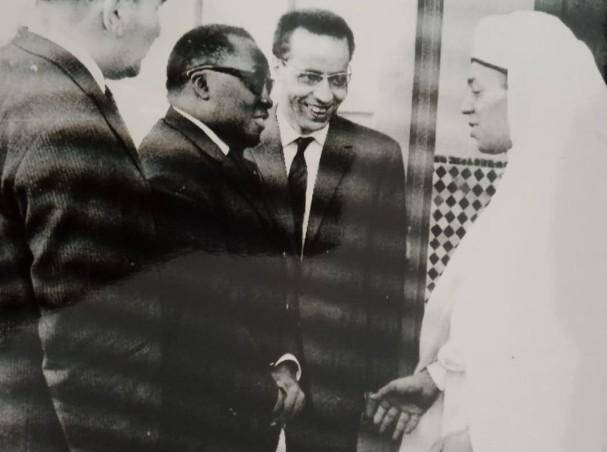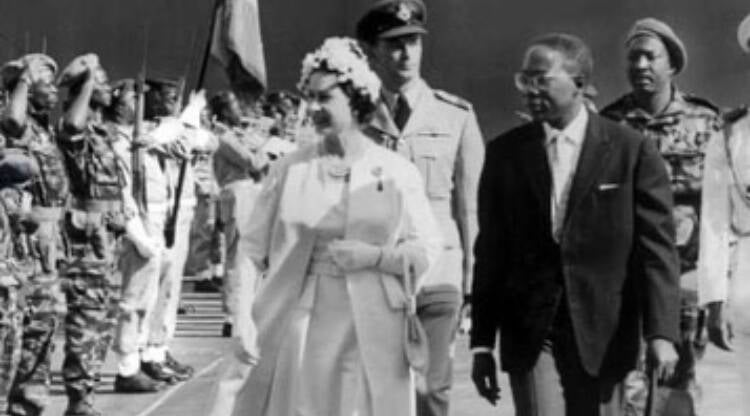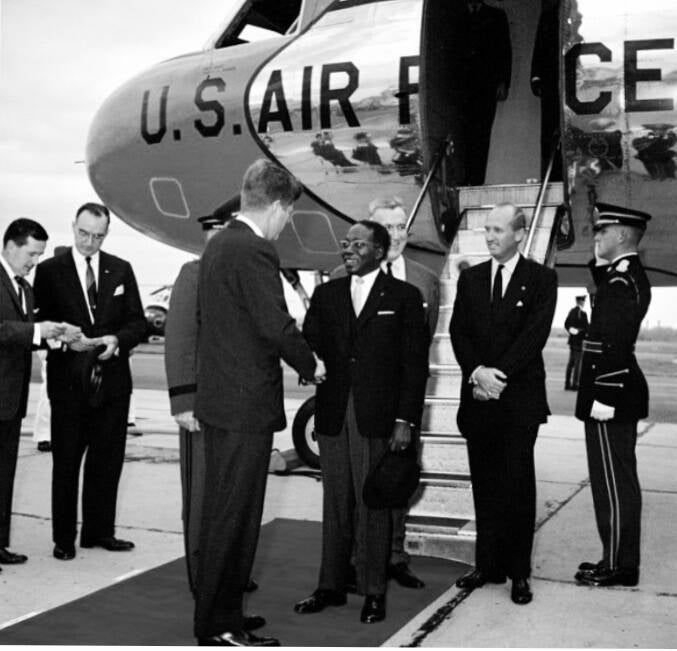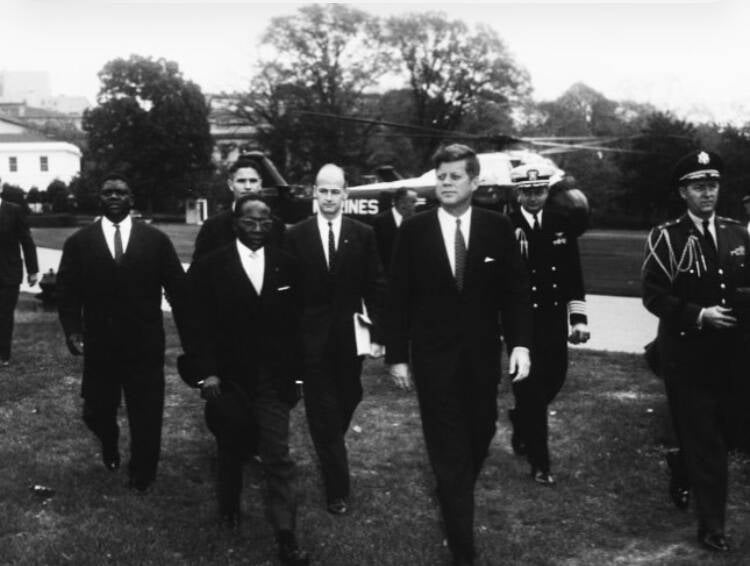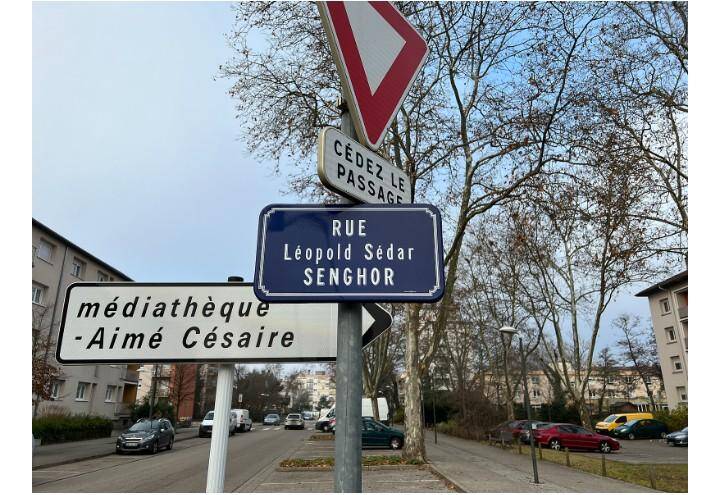A bridge between worlds
Discover the profound philosophy that fuels my deep respect and love for France, even as a proud African. Explore the values of mixed heritage, tolerance, and unapologetic self-love that guide my journey.
France, I will forever hold deep gratitude for your embrace, for the respect and honor you have bestowed upon my family’s legacy. Our African stories are intricately woven into the tapestry of French history, a beautiful testament to the power of connection and understanding that transcends cultures.
I dedicate this series of books to my son, so he may grasp the roots from which he springs and navigate the path ahead. It is vital for him to know who we are as a family, even as we are scattered across the globe. He must dive deep into the kaleidoscope of my heritage—Senegalese, French, Portuguese, and Cape Verdean—A Creole spirit yearning to define itself, to unravel the myriad layers of my identity.
And in this mosaic, I hope he adds his own hues: American and Nigerian. I wish for him to break free from the confines of societal boxes that seek to restrain him, to embrace the fullness of his being without limitations.
I pray that life grants him the opportunities to be, somewhat like his ancestors, a true citizen of the world, vibrant and rich with tolerance, colors and flavors.
For me, Paris has been a sanctuary, a refuge for my parents. In 1980, my father fled Senegal as a political refugee, seeking asylum from a tumultuous past filled with false accusations, a "set up" aimed at tarnishing his character to takeover his wealth. The French government welcomed him with open arms, offering a new beginning. He transitioned from a distinguished lawyer, notary, diplomat and high UN representative to wandering the streets of Paris as an invisible man. Yet it was here, in this city of lights, that the true journey of love and resilience began to unfold.
Family Tree
The one we call, "Lion!" My great grand father. Basile Diogoye Senghor (pronounced: Basile Jogoy Senghor), was a wealthy peanut merchant belonging to the "bourgoisie" of the Serer people. Basile Senghor was said to be a man of great means and owned thousands of cattle and vast lands, some of which were given to him by his cousin the king of Sine. (Senegal, Africa).

My grand father René Senghor, my grand mother Hélène, my father Hyacinthe and some of his siblings.


My grand father's little brother, my grand uncle, the one I call "the patriarch", the " Bonus" grand father Leopold Sédar Senghor
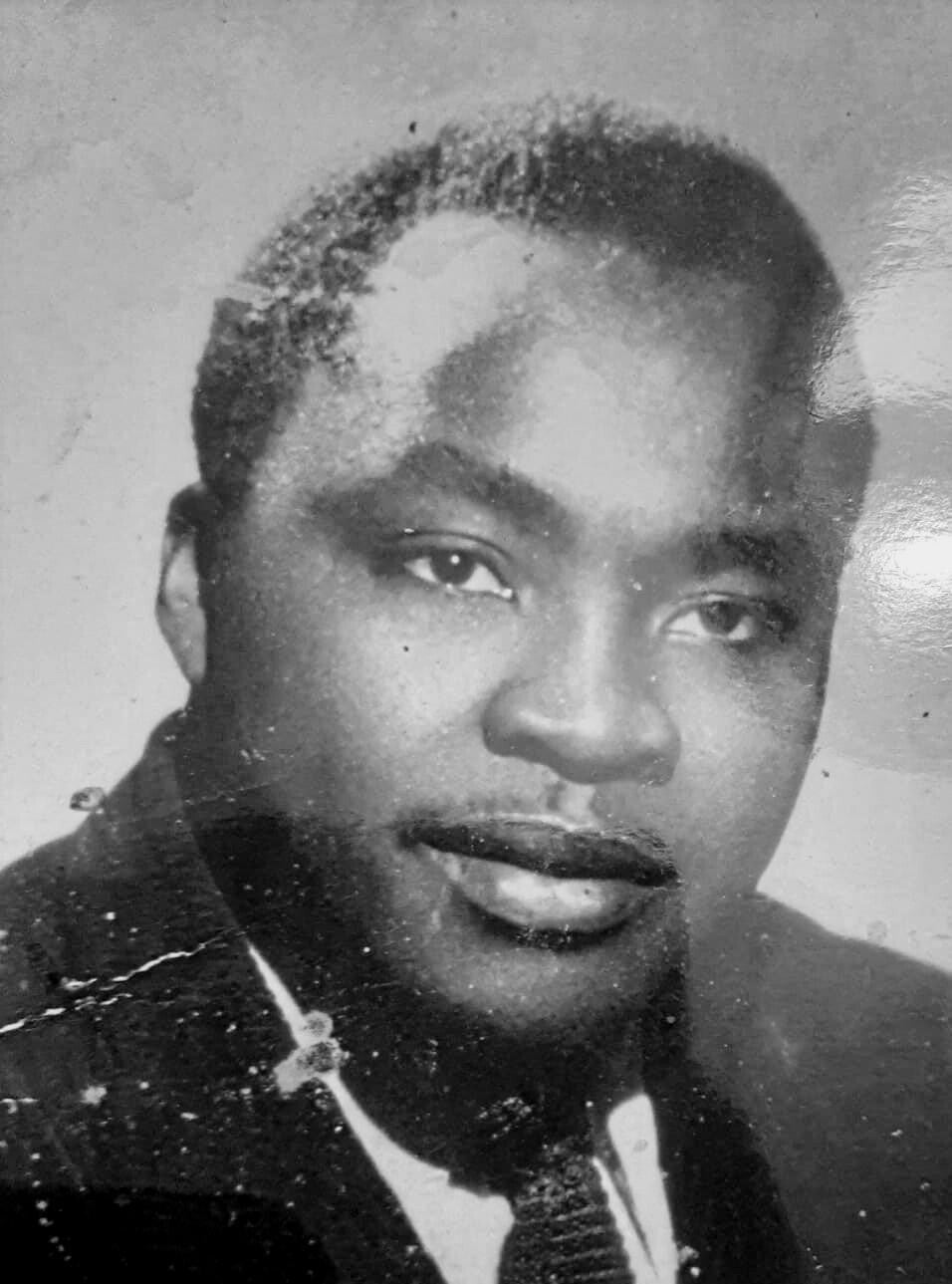
My father...My hero
He taught us, his children, to celebrate our African identity, culture, and values, instilling in us a deep sense of pride and self-worth. Our family has always stood together, fighting against arrogance and the spirit of pride while rejecting inferiority complexes and embracing authenticity. A strong believer in Christ, he experienced a journey from riches to rags, all with immense grace and dignity. He never allowed bitterness to take root in his heart. Instead, he took accountability for his mistakes, accepting the hardships life presented him as opportunities for the elevation of his soul. He understood that he had a God-given mission, a divine assignment, and recognized himself as a tool to showcase God's glory.
My father Hyacinthe and Hassan II king of Morocco
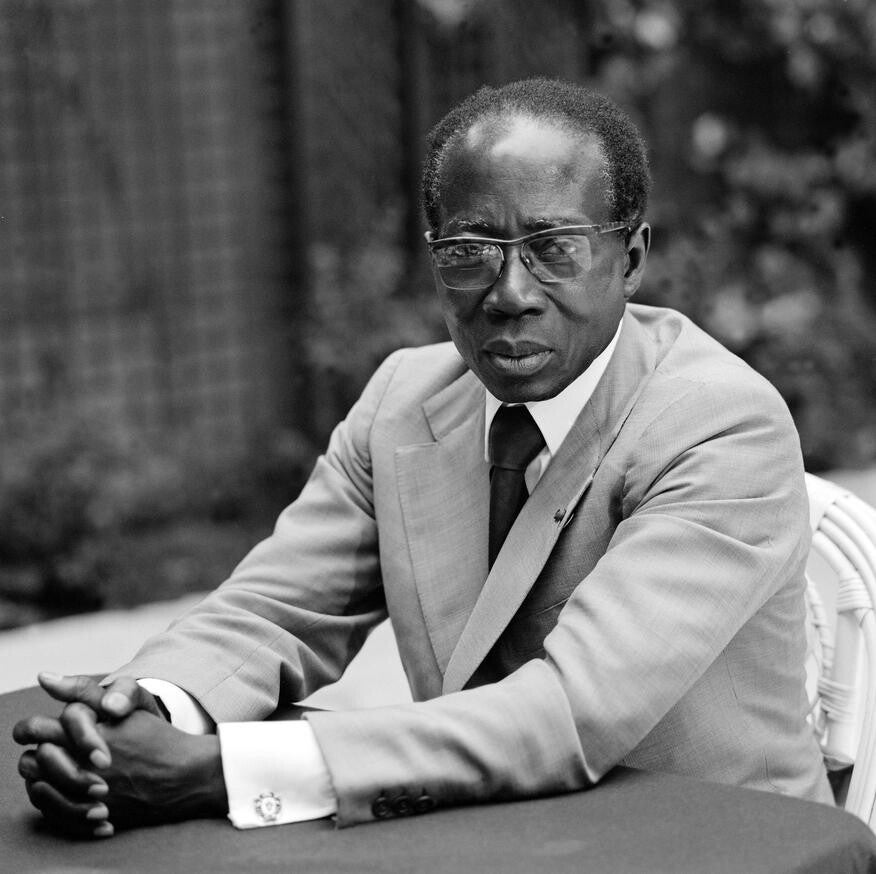
Senghor's Philosophy
When I think of Francophonie, my mind inevitably turns to Léopold Sédar Senghor, the patriarch of our family, who embodies this concept so profoundly. For him, Francophonie was more than just a linguistic connection; it represented one of his deepest ambitions: the emergence of an "integral humanism." He understood that his French education and his Senegalese roots were like opposite sides of a coin. In this intricate dance of identities, he sought the common ground that unites us all. By highlighting what connects us rather than what sets us apart, he charted a path that resonates with the universal.
Exploring the power of mixed heritage and the importance of tolerance in building a harmonious world. Senghor's philosophy emphasizes the beauty of cultural exchange and the rejection of racism in all its forms. Embracing the idea of being true to yourself, unapologetically.
He is, without a doubt, the very soul of Francophonie. His life reflects a rich cocktail of identity, his principles emerge from his profound thoughts, and his poetry reveals the essence of his being. We owe it to him to write "Francophonie" with a capital F, a testament to the significance he ascribed to this cultural bond. He envisioned a world where dialogue and understanding could prevail.
Indeed, the essence of Francophonie is encapsulated in his vision. He was acutely aware that his dual identity—French and Senegalese—was a fertile ground for seeking out what we share. He taught us to appreciate the cultural and philosophical ties that bind us together.
Francophonie is not just a linguistic phenomenon; it is a shared culture among Francophones that forms a vital part of our identities, varying in significance from one person to another.
He recognized that his Senegalese heritage and West African culture enriched the French language with vibrant new hues. In return, the French language opened doors for him and many others to embrace humanist thought. It wasn’t merely his ambition that made French and African humanism universal; it was the spreading of the French language that allowed him to connect with the world at large.
In honoring him, I celebrate the legacy of Francophonie—a rich, living culture that continues to inspire us to find beauty and unity in diversity.
His vision for a pluralistic society was one of harmony rather than division. He envisioned a future where diverse cultures coexist in mutual respect. His experiences during wartime profoundly influenced his writings, shaping a perspective that called for a more inclusive and democratic French society.
In his work, he delves into the intricate relationship between Africa and Europe, reframing it not as one of oppressor and oppressed, but as a partnership in a shared, pluralistic world. He believed in the power of cross-cultural dialogue to foster love, respect, understanding and collaboration.
At the heart of his philosophy is a celebration of African identity infused with the French one. He sought to reevaluate and honor the richness of African culture, history, and identity—elements that had often been marginalized during the colonial period. His work emphasizes the importance of recognizing and valuing the contributions of Black civilization.
As a co-founder of the Négritude movement, Senghor played a pivotal role in affirming Black identity and the significance of Black culture. This intellectual and artistic response to colonialism aimed to uplift and celebrate African heritage often dismissed or devalued, with his own writings forming a cornerstone of this endeavor.
In essence, "La pensée Senghorienne" embodies his philosophy as a central figure in the Négritude movement. It is rooted in affirming African cultural identity and value, advocating for a society that embraces pluralism. His thought highlights the unique contributions of Black civilization while envisioning a future rich in diversity and a genuine relationship between Blacks and Whites.


A legacy for all
Senghor’s vision resonates with French language learners, philosophy enthusiasts, travelers, avid readers, lovers of French history and literature, political thinkers, and advocates for human rights. Discover how his ideas inspire me first and foremost, but also freedom fighters and egalitarians worldwide.
Académie Française/ French Council
It's time for a history and culture lesson that's important for understanding the French language.
We're talking about the Académie française. Think of it as the ultimate language police—but make it fancy, exclusive and historical!
The Deal with the Académie
Back in 1635, a man named Cardinal Richelieu decided the French language needed its own official club. Why? To keep French pure, elegant, and très chic for all the cool arts and sciences. It’s the highest authority, part of a bigger group called the Institut de France. Their motto? "À l'immortalité" (To immortality!). Talk about goals!
Their main mission: making sure English doesn't totally take over. They are serious about preserving the French identity through language.
Who Are "The Immortals"?
This is the great part. The Académie has exactly 40 seats. The people in those seats? They are the "Immortals" (les immortels). They’re elected for life by the other members because they are literary rockstars. Once you're in, you're in—until, well, you're not (death).
Their Job Description:
- Purity Patrol: Keeping the French language squeaky clean and free from all those franglais influences.
- The Dictionary Squad: They publish and constantly update the official Dictionnaire de l'Académie française. They decide which words are officially, officially French.
- Grammar Gurus: They regulate grammar, vocabulary, and style. They are the final say on whether a word is cool or totally faux pas.
- Culture Shapers: They might be a bit traditional, often taking a stand against slang or English words creeping in, shaping how French is taught and perceived.
- Award Season: They give out literary prizes to recognize talent (and maybe a little courage or charity, too!).
Spotlight on an Immortal: Léopold Sédar Senghor
An African president as an "Immortal"! How cool is that? Léopold Sédar Senghor—our brilliant poet, author—was elected to the Académie française on June 2, 1983. He was the very first African person to get this major honor! He held Seat 16 until he passed away in 2001. A huge moment in history for the institution, our family and Africa!
Who's in the Club Maintenant?
As of right now (late 2025/early 2026), these are the 40 people—or the "Immortals"—who hold those prestigious seats. Notice some seats are empty? That means they're waiting for the next legend to be elected!
Seats:
1 Claude Dagens
2 Dany Laferrière
3 Vacant
4 Jean-Luc Marion
5 Andreï Makine
6 Christian Jambet
7 Jules Hoffmann
8 Daniel Rondeau
9 Patrick Grainville
10 Vacant
11 Éric Neuhoff
12 Chantal Thomas
13 Maurizio Serra
14 Florian Zeller
15 Frédéric Vitoux
16 Raphaël Gaillard
17Erik Orsenna
18 Vacant
19 Sylviane Agacinski
20 Vacant
21 Alain Finkielkraut
22 Alain Aspect
23 Pierre RosenbergThe Dean (the longest-serving member)
24 François Sureau
25 Dominique FernandezThe Oldest member
26 Jean-Marie Rouart
27 Vacant
28 Jean-Christophe Rufin
29 Amin Maalouf The Perpetual Secretary
30 Danièle Sallenave
31 Michael Edwards
32 Pascal Ory
33 Dominique Bona
34 François Cheng
35 Antoine Compagnon
36 Barbara Cassin
37 Michel Zink
38Marc Lambron
39 Jean Clair
40 Xavier Darcos
So, there you have it! The ultimate guardians of the langue française. Pretty intense, non? It’s all about keeping that literary legacy alive!

La Passerelle Senghor
Passerelle Léopold-Sédar-Senghor, formerly known as Pont de Solférino, is a footbridge over the River Seine between the 1st and 7th arrondissements of Paris. Opened in 1999,
The bridge was renamed Léopold-Sédar-Senghor on the 9th of October 2006 on the centenary of his birth.
Other Streets (Senegal, France)
Senghor University (Egypt)
In May 1989, during the Summit of Heads of State and Government of French-speaking nations in Dakar, the concept of an international university focused on African development was introduced and subsequently adopted. This initiative led to the establishment of Senghor University in October 1990, a private institution recognized for its commitment to international public service and dedicated to advanced education.
Senghor University provides a diverse range of multidisciplinary training programs centered on sustainable development within a global context. The university actively participates in development projects, involving students in practical work that fosters a network of skills and expertise. This includes professional development for its participants, as well as opportunities for continuing education and distance learning.
Located in Alexandria, along with ten additional campuses across Africa and Europe, Senghor University offers specialized master's programs and short courses tailored to enhance the development competencies of executive specialists dedicated to Africa's progress. The university selects around 200 students through a competitive process that attracts over 3,000 applicants from 25 countries. Additionally, it provides 120 scholarships for a two-year Master's program in development, supporting aspiring leaders in their educational pursuits.

Senghor Stadium
Senghor International Airport

National Anthem Written By Leopold Sédar Senghor
"Le Lion rouge", "The Red Lion", is the national anthem of Senegal. It was adopted in 1960.
The lyrics were written by Léopold Sédar Senghor, while the music is composed by Frenchman Herbert Pepper. The kora (a type of harp) and balafon (wooden xylophone) are traditional Senegalese musical instruments.
Everyone strum your koras, strike the balafons.
The red lion has roared.
The tamer of the savannah
Has leapt forward,
Dispelling the darkness...
Senghor and the arts, the exhibition to discover at the Musée du Quai Branly in Paris - Jacques Chirac (Former French President)
The Musée du Quai Branly presents a portrait of Léopold Sédar Senghor in a new exhibition from February 7 to November 19, 2023. Politician, man of letters, pioneer of Négritude, Léopold Sédar Senghor is a major figure in French and Senegalese culture. The Musée du Quai Branly - Jacques Chirac presents a portrait of this man with a passion for art, in an exhibition entitled Senghor et les arts - réinventer l'universel.
Brazil showing love





